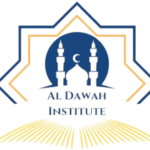The Arabic language holds a special place in the hearts of millions of Muslims around the world. As the language of the Quran and the teachings of the Prophet Muhammad (peace be upon him), Arabic is not just a means of communication but a gateway to understanding the divine message of Islam. At Al Dawah Institute, we emphasize the immense value of learning Arabic for both spiritual and intellectual growth. In this post, we’ll explore why mastering the Arabic language is a transformative journey for any Muslim.
1. Connecting with the Quran in Its Original Language
One of the greatest rewards of learning Arabic is the ability to understand the Quran in its original form. While translations of the Quran are available in many languages, they often fall short of capturing the depth and beauty of the original Arabic text. The nuances, poetic rhythm, and linguistic precision found in the Quran can only be fully appreciated in Arabic.
By learning the language, students can engage directly with Allah’s words, gaining a deeper connection to their faith and enhancing their spiritual experience. At Al Dawah Institute, our Arabic courses are tailored to help learners read and understand the Quran, making the journey of memorization and reflection even more meaningful.
2. Understanding Islamic Teachings More Deeply
Arabic is not only the language of the Quran but also the language of Hadith (the sayings and actions of the Prophet Muhammad) and the vast body of Islamic scholarship that spans centuries. Many foundational Islamic texts, from Fiqh (Islamic jurisprudence) to Tafsir (Quranic exegesis), are written in Arabic.
By learning the language, students can access these sources directly, gaining a richer understanding of Islamic teachings. This knowledge enables them to explore Islamic concepts more profoundly, interpret the guidance of scholars, and apply Islamic principles to everyday life.
3. Enhancing Your Prayer Experience
For Muslims, Salah (prayer) is a fundamental aspect of worship, and it is conducted entirely in Arabic. While it’s possible to memorize the necessary phrases without understanding them, learning Arabic allows you to fully comprehend the meaning behind each word of your prayers. This understanding deepens your connection with Allah during worship, making the act of Salah more sincere and heartfelt.
At Al Dawah Institute, we focus on teaching practical Arabic that directly benefits your daily prayers, helping you recite with full awareness and devotion.
4. Preserving the Rich Islamic and Arabic Heritage
Arabic is a rich and ancient language with a profound cultural and intellectual legacy. As the language of some of the greatest scholars, poets, and scientists in Islamic history, Arabic has played a crucial role in preserving and transmitting knowledge across generations. By learning Arabic, you are not only connecting with your faith but also with centuries of wisdom, culture, and learning that have shaped the Muslim world.
Understanding Arabic allows you to appreciate classical Islamic texts, poetry, and literature in their authentic form, fostering a deeper sense of pride in your heritage.
5. Strengthening Your Global Muslim Identity
Arabic is spoken by over 420 million people worldwide, making it one of the most widely spoken languages in the world. As the language of Islam, it also unites Muslims across different cultures, countries, and communities. By learning Arabic, you strengthen your sense of belonging to the global Muslim Ummah.
Whether you are engaging with fellow Muslims from different parts of the world or traveling to an Arabic-speaking country, knowing the language helps you communicate, connect, and share in a common identity as a Muslim.
6. Boosting Cognitive and Linguistic Skills
Learning a new language is a highly rewarding intellectual challenge that offers numerous cognitive benefits. Studies show that learning languages improves memory, enhances problem-solving skills, and boosts creativity. Arabic, with its complex grammar and rich vocabulary, is particularly effective in strengthening cognitive abilities.
At Al Dawah Institute, we recognize the mental and educational advantages of learning Arabic and provide engaging lessons that not only teach the language but also sharpen the mind.
Conclusion
Learning Arabic is a journey of both spiritual and intellectual growth. It opens the door to understanding the Quran and Hadith in their original language, enhances your daily prayers, and connects you to the rich cultural and intellectual heritage of the Muslim world. At Al Dawah Institute, we are passionate about helping students of all ages and backgrounds master Arabic, whether for religious purposes or personal enrichment.
Join us today, and start your journey toward fluency in the language that has shaped the Muslim world for centuries. With expert instructors and a student-centered approach, Al Dawah Institute is here to guide you every step of the way.






